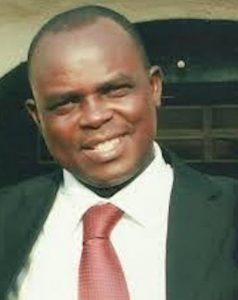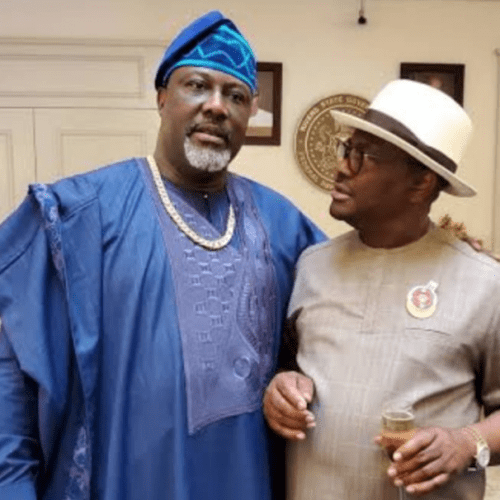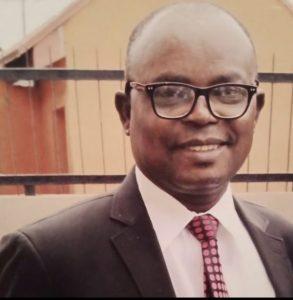By Bola Bolawole
turnpot@gmail.com 0807 552 5533
An authority on African History and leader of the Yoruba Nation Self-Determination Group, Prof. Banji Akintoye, mounts the rostrum here today to reply (in an abridged form because of space constraint) to the Oba of Benin; read on: “On November 26, 2023, the Oba of Benin ignited a huge controversy about the early history of Lagos. He did so by making the claim that the Edo people of the Benin Kingdom were the founders of Lagos. Because the crown worn by the Oba of Benin originated from Ife, we must be respectful in our answer to him… Most respectfully, what we will do is to lay out for the Oba of Benin the most ascertained history of Lagos from the best of knowledge from the studies of African history, the contributions of archaeology, historical linguistics and written records… and from the best and most sustained traditions of the Yoruba and Edo peoples.
“The peopling of the coastal forests and islands of the Lagos area occurred in the very ancient era when the Yoruba people, consisting of their many subgroups, occupied the large forest and coastal territory that is the Yoruba homeland. The Yoruba subgroup known as the Awori settled in the Lagos area in those very ancient times. The Awori are one of the Yoruba sub-groups. One best known fact about the Yoruba nation is that it comprises many subgroups differentiated by dialects of their common Yoruba language… The main Yoruba subgroups are, from the Yoruba territories near the Niger-Benue confluence generally southwards, the Oworo, Bunu, Owe, Iyagba, Jumu, and Ikiri (who, together, are now commonly called the Okun-Yoruba), the Igbomina, Oyo, Ibolo, Ijesa, Ekiti, Akoko, Owo, Ife, Owu, Egba, Ibarapa, Yewa, Ketu, Ondo, Ijebu, Ikale, Awori, Ilaje and Ishekiri (all today in Nigeria), the Sabe, Anago, Ohori, Popo and others (today in Benin Republic).
The Edo are not a Yoruba subgroup; they are an entirely different ethnic group – just as the Nupe, Igala, Hausa, and Ijaw. The Edo homeland and the homeland of the Awori subgroup of the Yoruba are not contiguous. Between the Edo territory and the Lagos territory of the Awori, there are the territories of the Yoruba subgroups: Itsekiri, Owo, Ondo, Ilaje, Ikale, and Ijebu. According to the best knowledge of history from archaeology and historical linguistics, the different peoples of today’s Nigerian Middle Belt and South (Yoruba, Igbo, Nupe, Igala, Gbagyi, Edo and others), evolved on the Middle Niger into distinct linguistic or ethnic groups (or nations) about 40,000 years ago. From there, these ethnic groups or nations spread out over millennia and occupied the territories that are now their homelands. Available evidence shows that each of these nations had settled into its present homeland by about 6000 BC or about 8000 years ago.
It is from those earliest times that the Awori, one of these Yoruba subgroups, settled in the coastlands and islands that are now known as Lagos – with the Ijebu subgroup to their immediate east and northeast, the Ilaje and Ikale further to the east, and the Itsekiri still further to the east on the coast. The Awori settled in a coastal forest area consisting of coastal forests.
In about the 9th century AD, a very important revolution started at Ife in central Yorubaland and, over the next six centuries (until about 1600 AD), swept over the whole of Yorubaland, resulting in the creation of unified kingdoms and towns all over Yorubaland. It transformed the ancient clumps of small and separate settlements into unified kingdoms and towns everywhere in Yorubaland. Starting from Ife in the 9th Century AD, this revolution continued until about the 16th Century AD, and turned Yorubaland into a country of many proud kingdoms and rich towns…
In the Awori forests, this kingdom-creating revolution resulted in an Awori kingdom at Otta, Isheri and on Lagos Island. According to Lagos and general Yoruba traditions, the founder of the island kingdom was an Ife prince from Ife who, on arrival in the Awori forests, first settled briefly at Iseri and finally moved south to the main island of the area where he established his compound in a generally farmed area known as Oko or Eko, and the name Oko or Eko grew to become the island’s name. Historians believe that these Awori kingdoms were created in the course of the 11th Century AD.

In about the 12th Century, according to the traditions of the Yoruba and Edo people, the Edo people sent to the Oba of Ife for help. Their problem was that their Edo country was being disrupted by conflicts. And the help they wanted was that the Oba of Ife should help them to bring the Yoruba kind of political order to the Edo country. The Oba of Ife responded by sending one of his grandsons, a young warrior prince named Oranmiyan, to Edo. Oranmiyan went, fought and subdued several warring Edo groups and created the Benin kingdom, a kingdom like the Ife kingdom. After ruling the Benin kingdom for some years, Oranmiyan decided that the kingdom should not be ruled by him, a non-Edo foreigner, but by an Edo man. Oranmiyan and the Edo elders therefore installed as the king of the kingdom a young son born to Oranmiyan by one of his Edo wives, a boy born and raised in the Edo culture. That young king, named Ewuare, is the progenitor of all the kings of the Benin kingdom till today. That is why Edo kings are today counted among the Yoruba kings or among the “sons of Oduduwa”.
The earliest non-Awori people to come trading with the Awori on the Awori coastal islands of Lagos, even long before the Awori had created any kingdom, were the Ilaje who, according to the traditions of all the coastal Yoruba subgroups, were the earliest pioneers of trade along the Yoruba coast. Later, Ijebu traders, and later still the Ikale traders, and then the Egun and Anago traders from the west, came to trade with and among the Awori. This coastal trade existed long before the coming of the earliest European explorers and traders to the coast of West Africa in about the 1470s AD.
Following the coming of European trade in about the 1470s and its expansion along the coast of West Africa, the European traders were attracted particularly to ports like Lagos, the Benin port of Gwato and the Itsekiri port town of Warri. The vibrant trade in European imported goods enhanced the trade and wealth of these port towns… The Itsekiri kingdom became a rich trading kingdom… But the location of the Itsekiri kingdom was much less accessible to European traders than the port of the Benin kingdom. Therefore, most of the European trade went to the Benin port which, until about the 1550s, controlled most of the coastal trade and became the source of most imported goods going into the eastern parts of the Yoruba interior. As a result, the Benin kingdom became, for about a century, the richest and most powerful kingdom on the West African coast…
(However, Lagos) blossomed into a massive commercial centre from about the 1550s… This growing commercial importance of Lagos attracted to Lagos more and more indigenous traders from all over the West African coast… By about the 1580s, Lagos had become the greatest commercial centre on the coast of West Africa, and its trade with the European traders had totally surpassed that of the Benin kingdom… The rulers of the Benin kingdom responded to this by embarking on an attempt to seize, control and possess the booming trade of Lagos… The Oba of Benin sent a considerable military force to Lagos. In 1603, a German trader trading in Lagos wrote in his notes that Lagos had become like a Benin military camp.
The background to this was a succession dispute that ensued between two princes of the Awori kingdom of Lagos, and the Benin decided to support one of the princes to win the throne and thereby turn the Awori kingdom of Lagos into its vassal. The Benin forces were successful for some time and the prince supported by them became considerably stronger than his rival. But the fighting was not yet over. In the further fighting, the commander of the Benin forces was killed. The near-victorious prince, named Asipa in most traditions, then decided to further seal his relationship with the Benin by offering to lead the group that was taking the body of the dead Benin commander to Benin.
In Benin, this Awori prince met the Oba of Benin (who) declared him his adopted son. Some traditions have it that Asipa also married a Benin wife in Benin. Asipa returned home into continued opposition and, in the midst of serious contention, was crowned Oba of Lagos. As the opposition to him never relented, he was forced to lean and harp continually on his Benin support. Some traditions have it that, to show support for this embattled Oba of Lagos, the Oba of Benin paid a brief visit to Lagos. This Oba of Lagos and his leading Awori supporters started the tradition that he was a prince from Benin, a descendant of the Oba of Benin. This is the origin of the tradition that claims a Benin origin for the Obas of Lagos…
But the Benin kingdom never succeeded in capturing and controlling Lagos or its bouncing trade… until Benin itself was conquered by the British in 1897”
Does this settle the controversy? And what was Mr. Babajide Sanwo-Olu, the governor of Lagos state’s response to the Benin oba’s assertion that the Binis founded Lagos? Does the Lagos governor know the history of the state he governs to start with?
- Former Editor of PUNCH newspapers, Chairman of its Editorial Board and Deputy Editor-in-Chief, BOLAWOLE was also Managing Director/ Editor-in-Chief of The Westerner newsmagazine. He writes the ON THE LORD’S DAY column in the Sunday Tribune and TREASURES column on Wednesdays in the New Telegraph newspaper. He is also a public affairs analyst on radio and television.




















